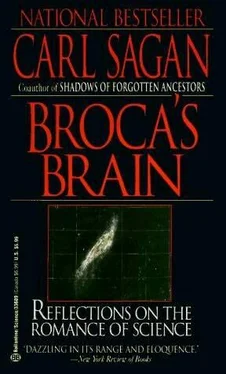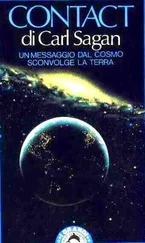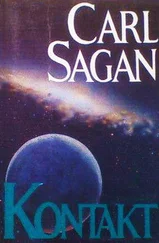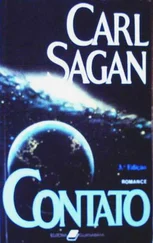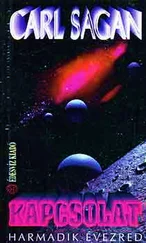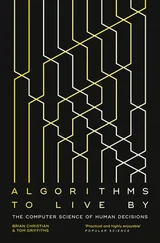Carl Sagan - Broca's Brain - The Romance of Science
Здесь есть возможность читать онлайн «Carl Sagan - Broca's Brain - The Romance of Science» весь текст электронной книги совершенно бесплатно (целиком полную версию без сокращений). В некоторых случаях можно слушать аудио, скачать через торрент в формате fb2 и присутствует краткое содержание. Жанр: Физика, на английском языке. Описание произведения, (предисловие) а так же отзывы посетителей доступны на портале библиотеки ЛибКат.
- Название:Broca's Brain: The Romance of Science
- Автор:
- Жанр:
- Год:неизвестен
- ISBN:нет данных
- Рейтинг книги:3 / 5. Голосов: 1
-
Избранное:Добавить в избранное
- Отзывы:
-
Ваша оценка:
- 60
- 1
- 2
- 3
- 4
- 5
Broca's Brain: The Romance of Science: краткое содержание, описание и аннотация
Предлагаем к чтению аннотацию, описание, краткое содержание или предисловие (зависит от того, что написал сам автор книги «Broca's Brain: The Romance of Science»). Если вы не нашли необходимую информацию о книге — напишите в комментариях, мы постараемся отыскать её.
Broca's Brain: The Romance of Science — читать онлайн бесплатно полную книгу (весь текст) целиком
Ниже представлен текст книги, разбитый по страницам. Система сохранения места последней прочитанной страницы, позволяет с удобством читать онлайн бесплатно книгу «Broca's Brain: The Romance of Science», без необходимости каждый раз заново искать на чём Вы остановились. Поставьте закладку, и сможете в любой момент перейти на страницу, на которой закончили чтение.
Интервал:
Закладка:
Classical Greece was replete with stories in which the gods came down to Earth and conversed with human beings. The Middle Ages were equally rich in apparitions of saints and Virgins. Gods, saints and Virgins were all recorded repeatedly over centuries by people of the highest apparent reliability. What has happened? Where have all the Virgins gone? What has happened to the Olympian gods? Have these beings simply abandoned us in recent and more skeptical times? Or could these early reports reflect the superstition and credulity and unreliability of witnesses? And this suggests a possible social danger from the proliferation of UFO cultism: if we believe that benign extraterrestrials will solve our problems, we may be tempted to exert less than our full measure of effort to solve them ourselves-as has occurred in millennialist religious movements many times in human history.
All the really interesting UFO cases depend on believing that one or a few witnesses were not bamboozling or bamboozled. Yet the opportunity for deception in eyewitness accounts is breathtaking: (1) When a mock robbery is staged for a law school class, few of the students can agree on the number of intruders, their clothing, weapons or comments, the sequence of events or the time the robbery took. (2) Teachers are presented with two groups of children who have, unknown to them, tested equally well on all examinations. But the teachers are informed that one group is smart and the other dumb. The subsequent grades reflect that initial and erroneous assessment, independent of the performance of the students. Predispositions bias conclusions. (3) Witnesses are shown a motion picture of an automobile accident. They are then asked a series of questions such as “Did the blue car run the stop sign?” A week later, when questioned again, a large proportion of the witnesses claim to have seen a blue car-despite the fact that no remotely blue car is in the film. There seems to be a stage, shortly after an eyewitness event, in which we verbalize what we think we have seen and then forever after lock it into our memories. We are very vulnerable in that stage, and any prevailing beliefs-in Olympian gods or Christian saints or extraterrestrial astronauts, say-can unconsciously influence our eyewitness account.
Those skeptical of many borderline belief systems are not necessarily those afraid of novelty. For example, many of my colleagues and I are deeply interested in the possibility of life, intelligent or otherwise, on other planets. But we must be careful not to foist our wishes and fears upon the cosmos. Instead, in the usual scientific tradition, our objective is to find out what the answers really are, independent of our emotional predispositions. If we are alone, that is a truth worth knowing also. No one would be more delighted than I if intelligent extraterrestrials were visiting our planet. It would make my job enormously easier. Indeed, I have spent more time than I care to think about on the UFO and ancient astronaut questions. And public interest in these matters is, I believe, at least in part, a good thing. But our openness to the dazzling possibilities presented by modern science must be tempered by some hard-nosed skepticism. Many interesting possibilities simply turn out to be wrong. An openness to new possibilities and a willingness to ask hard questions are both required to advance our knowledge. And the asking of tough questions has an ancillary benefit: political and religious life in America, especially in the last decade and a half, has been marked by an excessive public credulity, an unwillingness to ask difficult questions, which has produced a demonstrable impairment in our national health. Consumer skepticism makes quality products. This may be why governments and churches and school systems do not exhibit unseemly zeal in encouraging critical thought. They know they themselves are vulnerable.
Professional scientists generally have to make a choice in their research goals. There are some objectives that would be very important if achieved, but that promise so small a likelihood of success that no one is willing to pursue them. (For many years this was the case in the search for extraterrestrial intelligence. The situation has changed mainly because advances in radio technology now permit us to construct enormous radio telescopes with sensitive receivers to pick up any messages that might be sent our way. Never before in human history was this possible.) There are other scientific objectives that are perfectly tractable but of entirely trivial significance. Most scientists choose a middle course. As a result, very few scientists actually plunge into the murky waters of testing or challenging borderline or pseudo-scientific beliefs. The chance of finding out something really interesting-except about human nature-seems small, and the amount of time required seems large. I believe that scientists should spend more time in discussing these issues, but the fact that a given contention lacks vigorous scientific opposition in no way implies that scientists think it is reasonable.
There are many cases where the belief system is so absurd that scientists dismiss it instantly but never commit their arguments to print. I believe this is a mistake. Science, especially today, depends upon public support. Because most people have, unfortunately, a very inadequate knowledge of science and technology, intelligent decision making on scientific issues is difficult. Some pseudoscience is a profitable enterprise, and there are proponents who not only are strongly identified with the issue in question but also make large amounts of money from it. They are willing to commit major resources to defending their contentions. Some scientists seem unwilling to engage in public confrontations on borderline science issues because of the effort required and the possibility that they will be perceived to lose a public debate. But it is an excellent opportunity to show how science works at its murkier borders, and also a way to convey something of its power as well as its pleasures.
There is stodgy immobility on both sides of the borders of the scientific enterprise. Scientific aloofness and opposition to novelty are as much a problem as public gullibility. A distinguished scientist once threatened to sic then Vice President Spiro T. Agnew on me if I persisted in organizing a meeting of the American Association for the Advancement of Science in which both proponents and opponents of the extraterrestrial-spacecraft hypothesis of UFO origins would be permitted to speak. Scientists offended by the conclusions of Immanuel Velikovsky’s Worlds in Collision and irritated by Velikovsky’s total ignorance of many well-established scientific facts successfully and shamefully pressured Velikovsky’s publisher to abandon the book-which was then put out by another firm, much to its profit-and when I arranged for a second AAAS symposium to discuss Velikovsky’s ideas, I was criticized by a different leading scientist who argued that any public attention, no matter how negative, could only aid Velikovsky’s cause.
But these symposia were held, the audiences seemed to find them interesting, the proceedings were published, and now youngsters in Duluth or Fresno can find some books presenting the other side of the issue in their libraries. (See Chapter 5.) If science is presented poorly in schools and the media, perhaps some interest can be aroused by well-prepared, comprehensible public discussions at the edge of science. Astrology can be used for discussions of astronomy; alchemy for chemistry; Velikovskian catastrophism and lost continents such as Atlantis for geology; and spiritualism and Scientology for a wide range of issues in psychology and psychiatry.
There are still many people in the United States who believe that if a thing appears in print it must be true. Since so much undemonstrated speculation and rampant nonsense appears in books, a curiously distorted view of what is true emerges. I was amused to read-in the furor that followed the premature newspaper release of the contents of a book by H. R. Haldeman, a former presidential assistant and convicted felon-what the editor in chief of one of the largest publishing companies in the world had to say: “We believe a publisher has an obligation to check out the accuracy of certain controversial non-fiction works. Our procedure is to send the book out for an objective reading by an independent authority in the field.” This is by an editor whose firm has in fact published some of the most egregious pseudoscience of recent decades. But books presenting the other side of the story are now becoming available, and in the section below I have listed a few of the more prominent pseudoscientific doctrines and recent attempts at their scientific refutation. One of the contentions criticized-that plants have emotional lives and musical preferences-had a brief flurry of interest a few years ago, including weeks of conversations with vegetables in Gary Trudeau’s “Doonesbury” comic strip. As an epigraph to this chapter (on the death struggle of the snapdragon) shows, it is an old contention. Perhaps the only encouraging point is that it is being greeted more skeptically today than it was in 1926.
Читать дальшеИнтервал:
Закладка:
Похожие книги на «Broca's Brain: The Romance of Science»
Представляем Вашему вниманию похожие книги на «Broca's Brain: The Romance of Science» списком для выбора. Мы отобрали схожую по названию и смыслу литературу в надежде предоставить читателям больше вариантов отыскать новые, интересные, ещё непрочитанные произведения.
Обсуждение, отзывы о книге «Broca's Brain: The Romance of Science» и просто собственные мнения читателей. Оставьте ваши комментарии, напишите, что Вы думаете о произведении, его смысле или главных героях. Укажите что конкретно понравилось, а что нет, и почему Вы так считаете.
